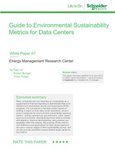Electric utility Georgia Power (GP) has received approval from the Georgia Public Service Commission (PSC) to expand its generation capacity with both fossil fuels and renewable energy to meet power demand from data centers.
In a vote that passed 4-1, regulators have approved Georgia Power's plans to generate 1.4GW from three new natural gas or oil-burning generators, as well as solar battery energy facilities, in order to meet local capacity demands driven by industrial sites and data centers, despite warning from clean energy groups against the proposition.
In addition to the new generators, the agreement will allow Georgia Power to contract generation from a natural gas plant in Pace, Florida, and 750MW from Mississippi Power Co., a sibling company under Southern Co.
According to Georgia Power, the last few years have seen 6.2GW of additional demand signing up, of which the company says 80 percent is driven by data centers.
Power prices have been increasing for residential customers in Georgia over the last year, with the PSC approving Georgia Power to recover more than $2 billion from ratepayers as fossil fuel costs were higher than anticipated. According to Bryan Jacob, solar program director at the Southern Alliance for Clean Energy, increases happened four times in the last year and another two increases have been approved for the next eight months.
Jacob noted that while fossil fuels may be a cheaper option for now, and "may have lulled the staff and/or commission into a state of complacency. Rest assured, fossil gas prices are volatile and they will go up again.”
In 2023, Georgia Power customer bills went up by around $15.90 per month in order to offset unrecovered fuel costs and new fuel expenses.
Georgia Power and the PSC are angling the new generators as a way to reduce the financial burden on customers, with Georgia Power estimating that between 2026 and 2028, customers will save $2.89 per month on their bills.
The generators will be located at Plant Yates in Coweta County. With approval from the PSC, Georgia Power will not have to go through the construction bidding process at Yates. The company has said that it will not recover any construction overrun costs from its customers unless delays are caused by an event that is outside of its control.
“At Georgia Power, our customers are at the center of everything we do, and we are unwavering in our commitment to provide them with clean, safe, reliable, and affordable energy,” Aaron Abramovitz, CFO for Georgia Power, said. “The stipulated agreement benefits all customers, and approval of this agreement will preserve and protect the reliability and quality of electric service our customers expect and support the continued economic development of our state – all while placing downward pressure on rates for all customers.”
In addition to the fossil fuel-based power, GP is planning to bring a 500MW solar facility with battery storage online by the end of 2026, and another 500MW of battery storage by 2027. In total, all the energy projects are predicted to cost around $3bn, which Southern Environmental Law Center attorney Jennifer Whitfield says will come from rate payers, with Plant Yates to account for half of the cost.
Whitfield notes, however, that as the units have a 46-year life span, this choice could result in "locking in Georgia's reliance on fossil fuels for decades."
The Sierra Club Georgia Chapter direct G Webber issued a statement following the PSC's approval:
“The Public Service Commission is supposed to be our safeguard. Unfortunately, it has too often allowed Georgia Power to fail upwards and allow decisions that hurt Georgia families, small businesses, and communities. Instead of challenging the utility on why its electric demand forecasts were so inaccurate just two years ago, when Georgia Power last updated its long-term energy plan, the PSC rolled over and took Georgia Power at its word. Ratepayers are already struggling due to multiple bill increases over the last two years, and now, the PSC’s decision will keep Georgia dependent on fossil fuels and their volatile costs, which are 100 percent paid by Georgia Power’s customers, for decades to come.”
Data Center Map currently lists 74 data centers across the state of Georgia, the majority of which are around Atlanta. Providers in the area include Digital Realty, Centersquare (formerly Cyxtera/Evoque), Flexential, T5 data Centers, CoreSite, Equinix, DataBank, DC Blox, 365 Data Centers, QTS, and EdgeConneX among others. Meta also has a campus.
Just this year, Georgia has seen Microsoft acquiring another 136 acres of land for data centers, expansion plans filed in Augusta and Tyrone, a data center campus proposed by Strategic Real Estate Partners outside of Atlanta, DC Blox filing for a new campus outside of Atlanta, and Amazon acquiring 430 acres of land for a data center in Covington.






